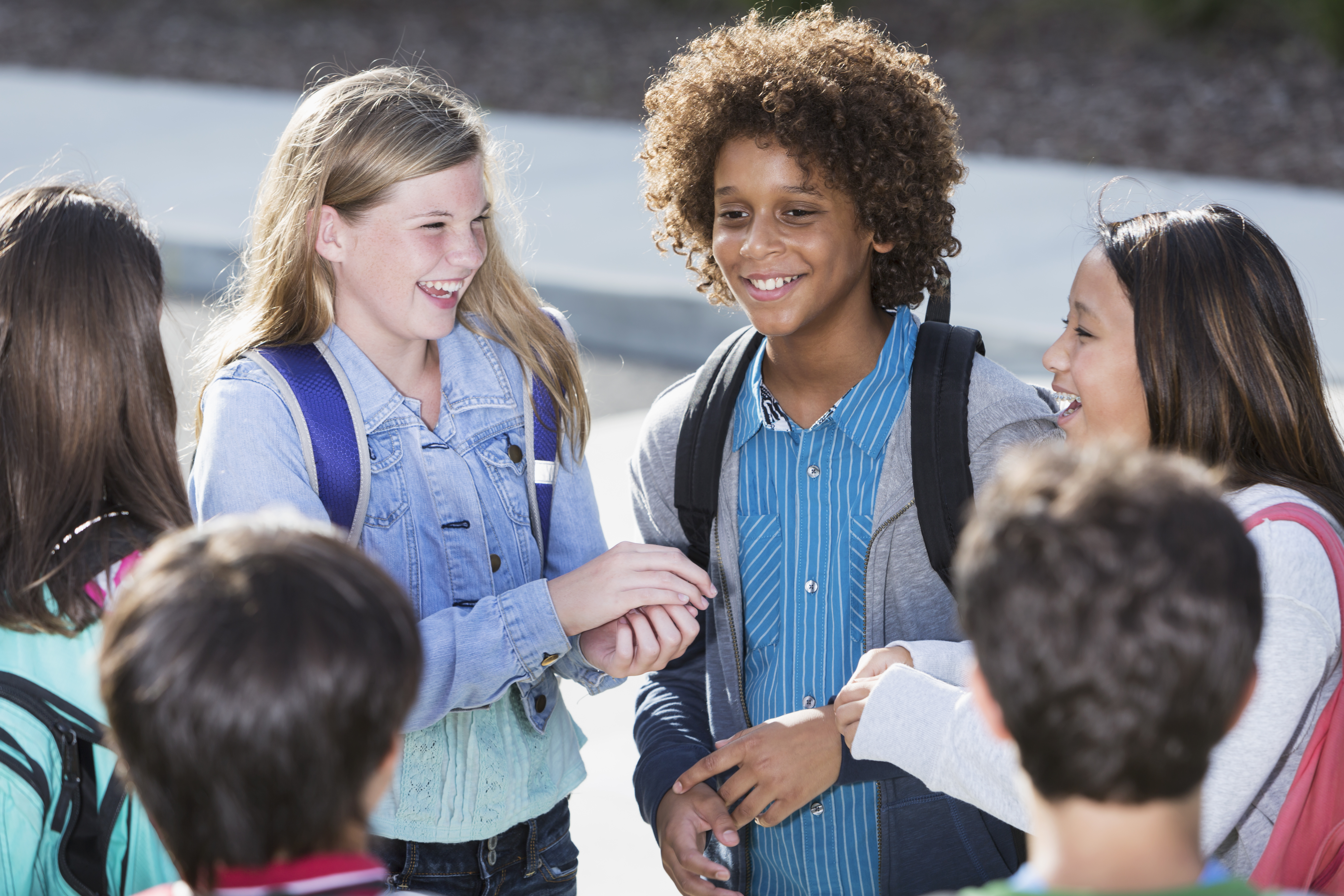The research project “Resilient” aims to increase well-being and motivation among lower secondary school pupils. The project has received 20 million kroner from the Research Council of Norway.

Many young people are experiencing more stress in everyday life, and a lot of this is associated with the demands they experience in relation to schoolwork and life in general. Figures from the PISA survey also show that many young people say that it is difficult to get to know others and that they feel lonely.
“The research project ‘Resilient’ aims to increase well-being and motivation among lower secondary school pupils through the promotion of social and emotional skills”, says Mari Rege, a professor at the University of Stavanger Business School.
The project will help pupils to learn what stress is, how it affects them and how they can deal with it in a positive way.
“This will enable pupils to better overcome school-related stress, as well as the stress they face in life generally”, she says.
20 million in research funding
There isn’t much research on this subject, but “Resilient” has now been awarded 20 million kroner from the Norwegian Research Council’s programme called FINNUT.
“We believe that this can be really useful for young people and can help them during the transition to lower secondary school and later on during their education. School plays an increasingly significant role regarding stress-related challenges”, says Edvin Bru. He is a professor at the Centre for Learning Environment at the University of Stavanger.
The project will take place over a five year period. During that time, researchers hope to be involved with 100 teachers and their pupils in their classrooms. This means that around 3000 pupils will be asked to participate in the research starting in the autumn of 2020. Half of the classes will partake in a teaching programme called Robust.
“We are proud to have received these funds, so now we must use them effectively so that we can achieve the goal of increasing pupils’ well-being and motivation”, says professor Sigrun K. Ertesvåg at the Centre for Learning Environment.
Life Skills is an interdisciplinary theme in the new curriculum
When the new core curriculum comes into effect, life skills and health will be included as an interdisciplinary theme: “Life skills and health as an interdisciplinary theme in schools will provide pupils with skills that promote good mental and physical health, and provide opportunities to make responsible life choices.” (The Norwegian Directorate for Education and Training)
Among other things, this interdisciplinary theme will include topics such as value choices, interpersonal relationships, being able to set boundaries and respect others’, and being able to manage thoughts, feelings and relationships.
“We hope that this project, and the programme we develop around it, can provide quality and comprehensive contents regarding this curriculum theme”, says Bru.
The teachers who will teach Robust will receive further training that will provide them with the skills needed to carry out the programme together with their pupils.
“The programme includes tasks and exercises that focus on social relationships, personal feelings, problem solving and conditions that affect motivation regarding school work. By being involved in these themes, pupils gain knowledge about their own reactions and they gain skills to solve problems in various ways”, he says.
Implementation is important
The way in which this type of initiative is implemented by schools and teachers is essential regarding how effective the initiatives will be. Implementation is the process by which theories, activities and structures are adapted, concretised and introduced into the field of practice.
“It involves the management, expertise and the organisation as a whole. Teachers must try out and assess what works in the classroom and with the pupils. When the implementation is done correctly, teachers and pupils will be left with the feeling that this was useful. Teachers feel better qualified and pupils become more robust”, says Ertesvåg.
Based on a pilot project
The new “Resilient” project builds on the experience gained from a pilot project conducted in Bærum Municipality during the 2018-2019 academic year. The pilot project has been conducted in all lower secondary schools in the municipality, and teachers have learnt how to give pupils insight into emotional regulation, problem solving, attentive presence, learning mindsets, as well as social skills and social responsibility.
“Data is currently being collected from this project. “Resilient” will be based on this material”, says Bru.
Large collaborative project
‘Resilient’ is a collaboration between the Business School, the Centre for Learning Environment, Jærskulen, Sandnes Municipality, Stavanger Municipality, as well as external partners.
“Representatives from the municipalities and the research communities will actively participate in the design and implementation of the project. Experts on social and emotional learning and research methods will be involved. These come from the University of Stavanger, The Norwegian Centre for Child Behavioural Development (NUBU), the University of Bath and Stanford University. Bærum Municipality will also help with the experience gained from the pilot project”, tells Ertesvåg.
Research that benefits society
Recently, researchers at UiS have also established Synapse Lab, where they will cooperate across disciplines and the faculty. “Resilient” will also be part of this cooperation. The goal is to gain more knowledge about motivation, effort and learning in education and working life. Both research and society will benefit from this.
“Schools and kindergartens, businesses and companies often implement new initiatives in order to promote motivation and learning. But they rarely get to know how effective these initiatives actually are. According to research, the initiatives are not usually based on knowledge that can actually have an effect”, said Mari Rege, when Synapse Lab was launched.